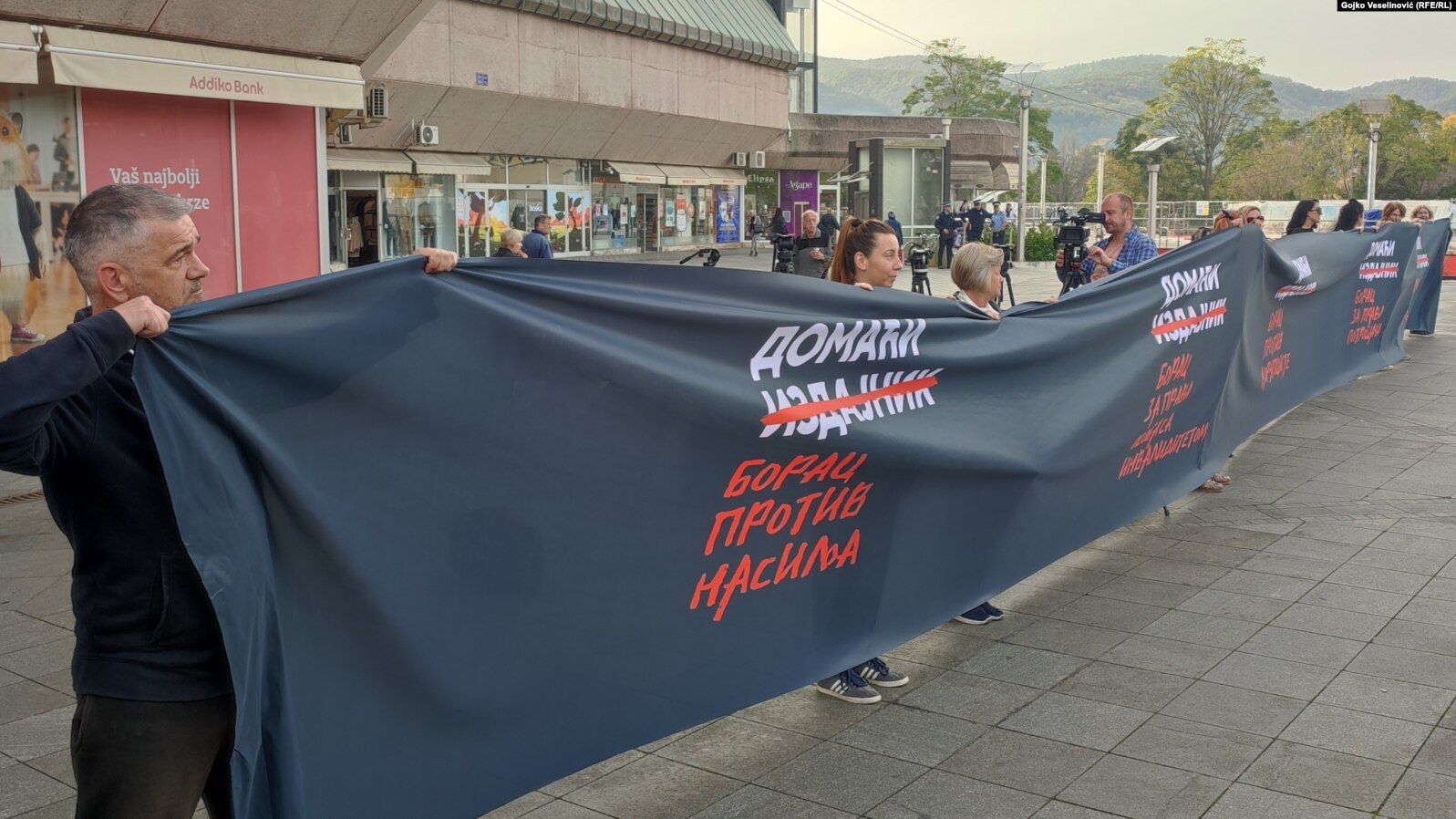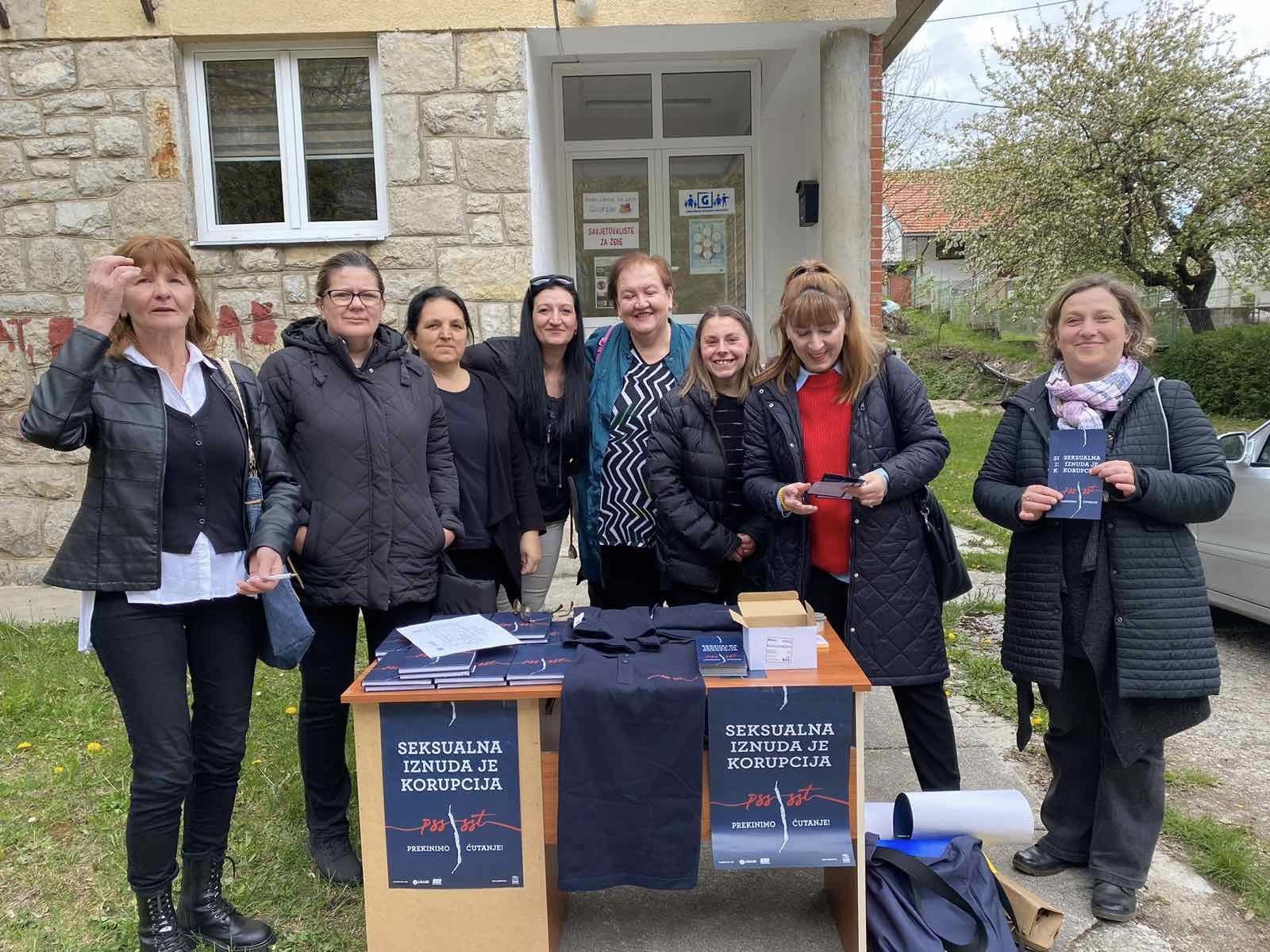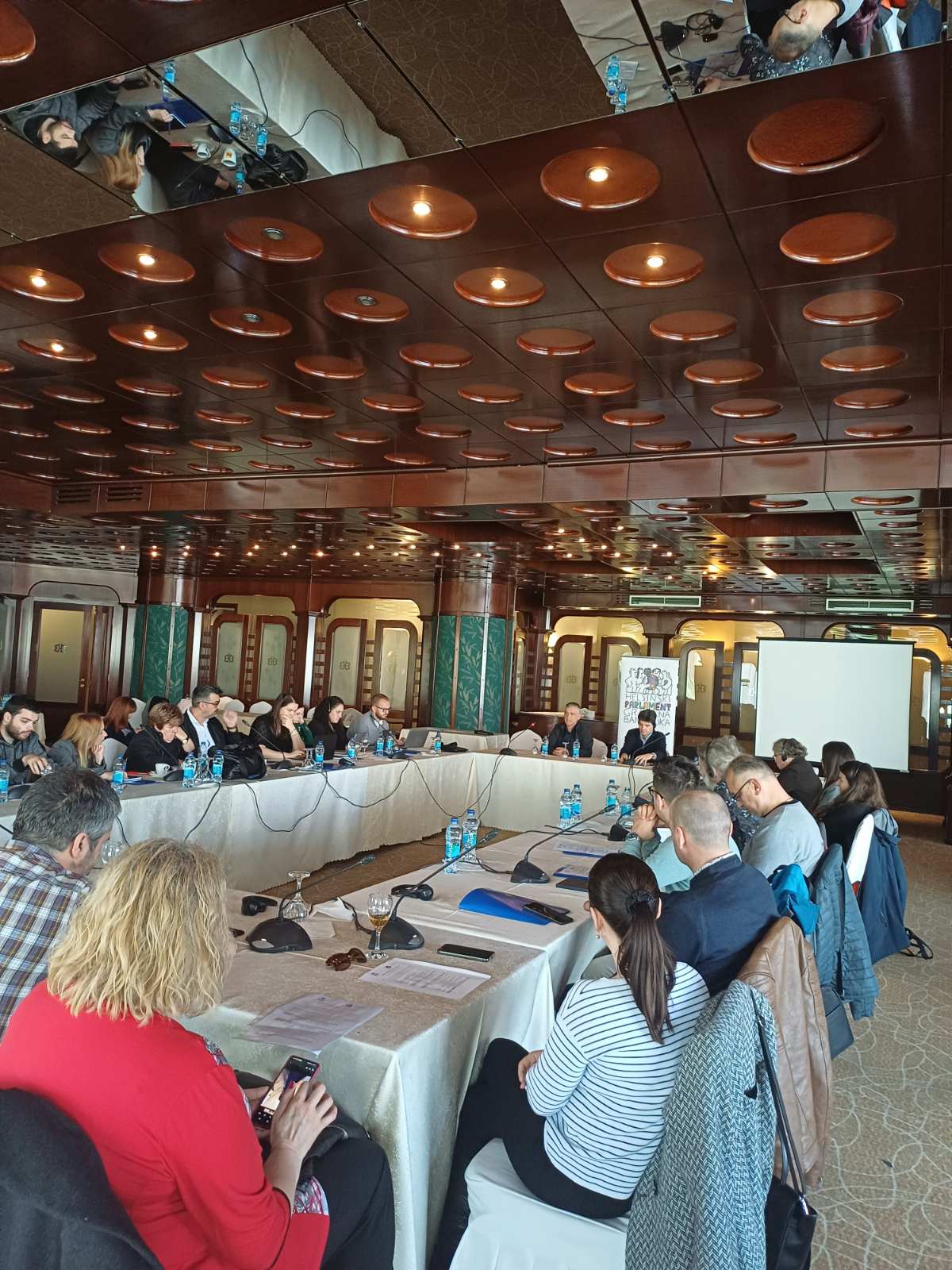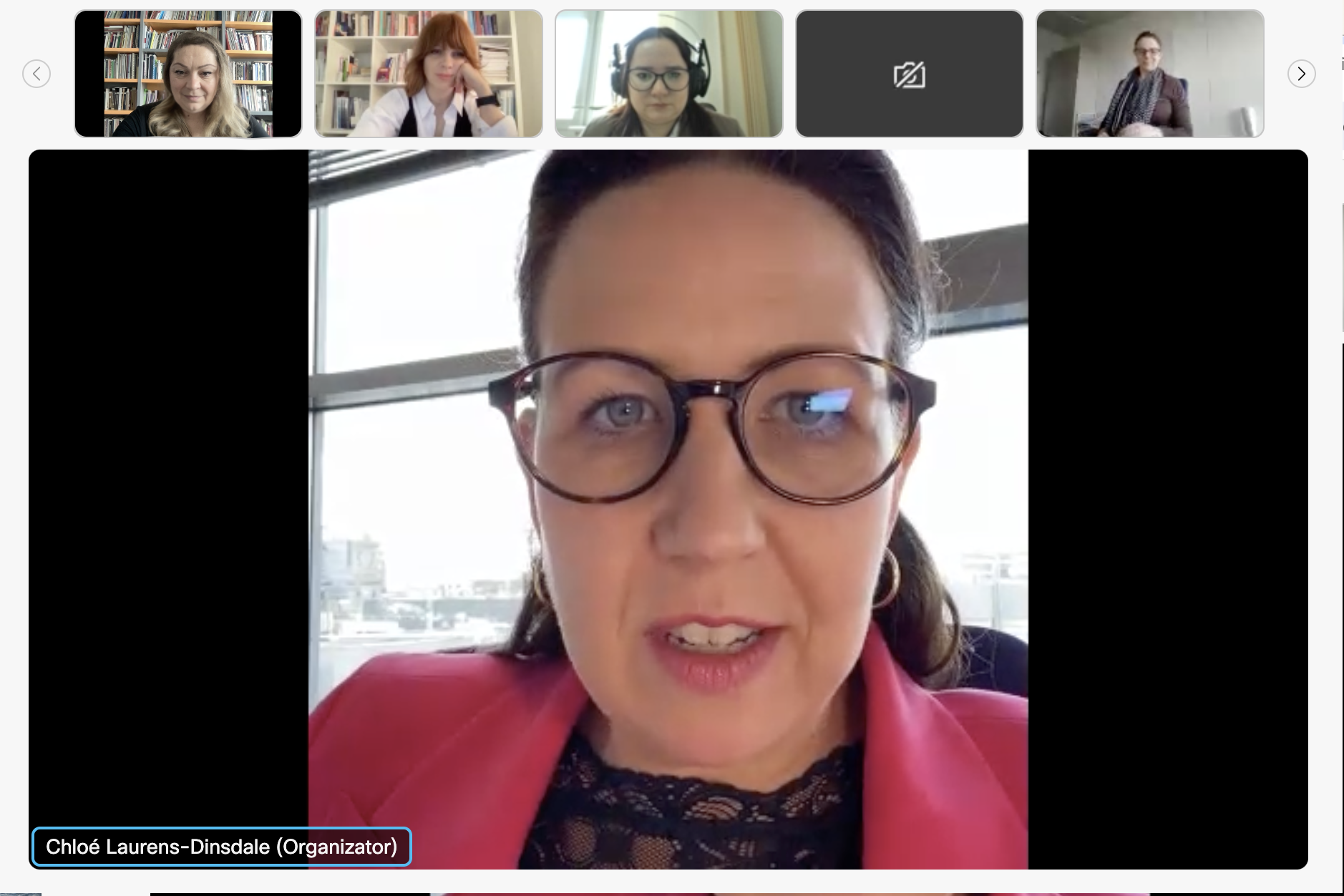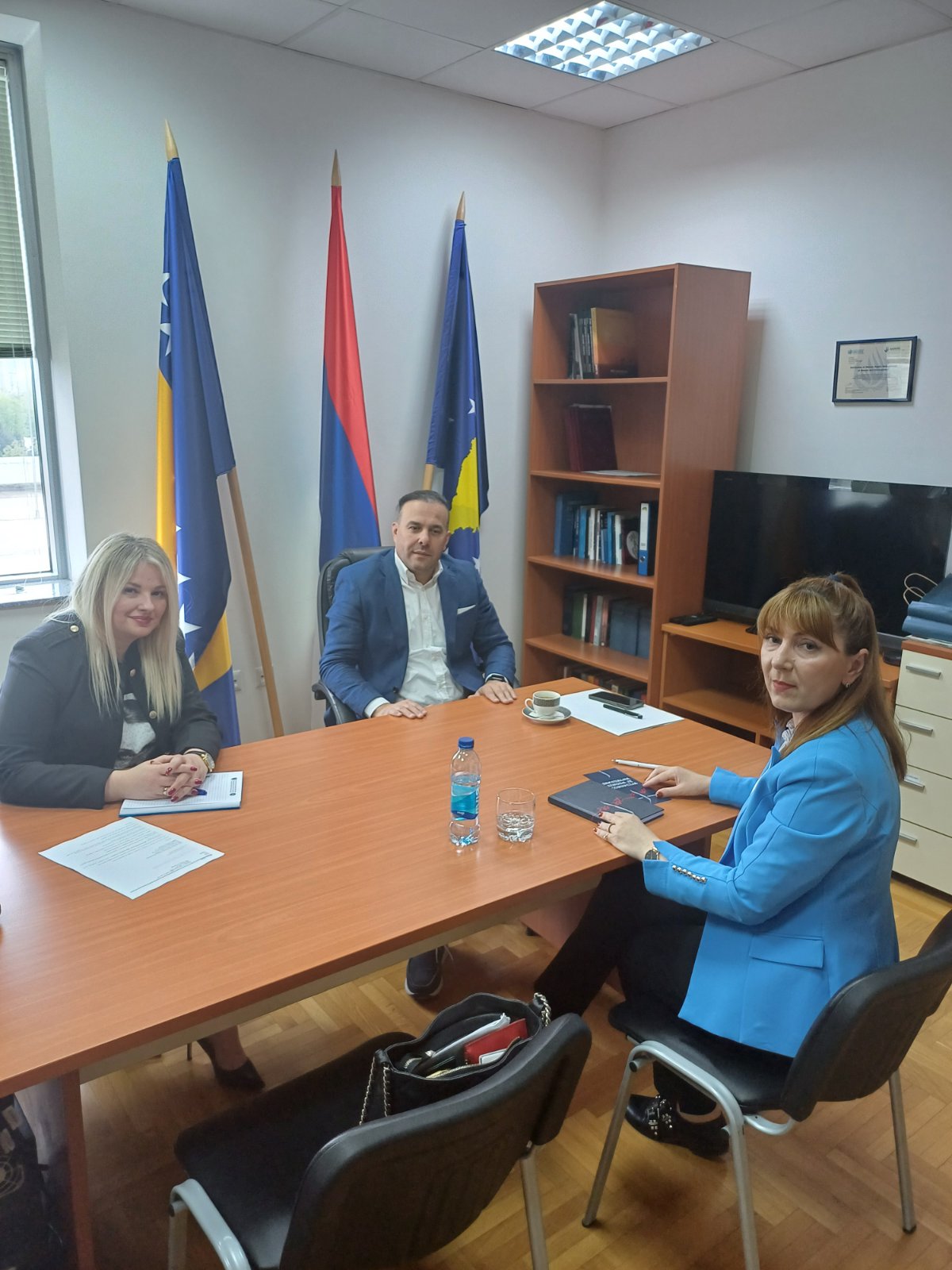The term “foreign agent” in a way represents sticking a target on the forehead of all dissenters and those who criticize the work of the Government of Republic of Srpska with arguments and justification.
This is how the Program Director of the Helsinki Citizens’ Assembly from Banja Luka, Dragana Dardić, explains the Draft Law on a Special Register and Publicity of the Work of Non-Profit Organizations in RS for Radio Free Europe (RFE).
This non-government organization could find itself under the surveillance of the Ministry of Justice of RS, which proposed the law, if it is adopted this year by the National Assembly of this BH entity.
According to Dardić, the law, although it was not adopted, has already harmed the work of the association.
In addition to self-censorship, she states, young people do not want to get involved in the work of citizens’ associations, because they fear that they will be “labeled”.

Dardić: The term ‘foreign agent’ is stigmatizing
Among other things, the law specifies that “agents of foreign influence” are non-profit organizations that are helped by foreign subjects, that are engaged in political action, activities or influence on public opinion, and violate the integrity and Constitution of the RS.
It also determines that non-profit organizations must report to the Ministry within 15 days that they have received financial or other assistance from abroad.
The law was announced in 2022 by Milorad Dodik, the pro-Russian president of RS, which is under US and British sanctions, saying that it is based on the Foreign Agents Registration Act (FARA), valid in the United States.
Research by RFE has shown that the proposed solution is much closer to Russia’s 2012 law on foreign agents. International organizations, the USA and the EU have accused Russia of using it to make it impossible for dissenters to work.
Who is “endangered”?
The Helsinki Citizens’ Assembly from Banja Luka is not the only non-government organization in the RS that could be hit by the new law.
Aleksandar Trifunović, editor of the “Buka” portal, told RFE that they will try to continue their work if the law is adopted, but that “all possibilities are open” as far as future functioning is concerned.
The goal of the law is to make it difficult for those few, conditionally speaking, independent media, which are trying to do their job properly, Aleksandar Trifunović, editor of “Buka”, told RFE.
“When you have an absolute majority and the absolute possibility of controlling the parliament, as the SNSD has, it is logical to reach for the ultimate restrictive anti-democratic law, with which you will legally ‘strain’ this type of work to any media that deals with it,” explains Trifunović.
He says that journalists are condemned by it in advance for “spying” and “undermining activities”, although, as he states, the system undermines itself the most.
He adds that submitting the report required by law “is a kind of humiliation on the one hand, on the other hand it is a kind of stigmatization.”
“So it is necessary to look for the culprit and they definitely decided that it is a few media, which really could not survive without international donations, because the fear of the local economy to advertise in media that criticize the government is something that is leading the way,” he pointed out.
He believes that it is now necessary to turn to the authorities of the European Union that have accepted BiH as a candidate for membership.
“If this law is something that belongs to European values, then we do not need that Europe,” said Trifunović categorically.
The Helsinki Citizens’ Assembly is of the opinion that the law is unnecessary, because the work of the association is already legally regulated.
Dragana Dardić says that the law, if it enters into force, will make the work of citizens’ associations registered in RS much more difficult.
“All this was pointed out by the Venice Commission, as well as some other international organizations, which said that this type of text actually represents inappropriate and unfounded interference in the work of civil society organizations and their internal autonomy,” she said.
She adds that there is no analysis or data that would justify the adoption of this law.
“Terms such as endangering democracy, collapse of the constitutional order are very perfidiously packaged, because under it you can put whatever you want, which further leads us to the possibility of arbitrary interpretations of these provisions,” Dardić assesses.
Reporters without Borders: Law withdrawn from procedure
The draft law on “foreign agents” is dangerous for the media and media freedom in BiH, the organization “Reporters without Borders” told RFE.
Pavol Szalai, head of the desk for the European Union and the Balkans of this organization, says that it does not protect the interests of the RS and its security, but is a measure introduced to silence critical voices.
He believes that the law “may lead to intimidation of journalists and their administrative harassment”.
“The text is a little ‘softened’, but it still leaves the possibility that media which are financed from abroad can be labeled as ‘agents of foreign influence’. And many media have the status of non-government organizations. BiH is not the only such country,” said Szalai.
His position is that the Draft Law should be withdrawn from the procedure.
“If the Government of the Republic of Srpska wants to deal with the legitimate goal of fighting disinformation from third countries, from various dictatorships, which I think is a problem in BiH and the RS, it should consult with journalists and the media before taking any measures,” Szalai believes.
He compares the Draft Law to SLAPP lawsuits brought “under the guise of protecting against false information,” and states that both have the same goal, to harass and intimidate journalists.
He points out that Milorad Dodik, the pro-Russian president of the RS, states that the law was inspired by American legislation, which, he says, “is not true.”
“We know that these politicians draw their inspiration from the arsenal that Viktor Orban uses against the media, and Orban and his legislation are inspired by Russia,” Szalai said.
He points out that the law on foreign agents in Russia allows the arbitrary persecution of journalists.
Committee to Protect Journalists: Law against European values
An organization based in New York, the Committee to Protect Journalists (CPJ) is monitoring the legislative procedure, and assesses how it could affect the work of journalists and media houses, the organization told RFE.
The draft law on ‘foreign agents’ is a worrying development after defamation recently became criminalized again, Attila Mong, CPJ representative for Europe, said in a written response.
“Although the draft law in its current version does not explicitly target the media, it can potentially negatively affect journalists, media houses and organizations that fight for media freedom and operate as non-profit organizations,” Mong pointed out.
He added that history shows that such laws – although they are introduced under the guise of transparency and protection of national interests – often bring new pressure from the state on the non-profit sector.
“In the context of Bosnia and Herzegovina’s candidacy for the European Union, it is worth pointing out that such laws are against EU values. A similar law was adopted in Hungary in 2017, but it was repealed in 2020 after the decision of the European Court of Justice,” said Mong.
The pressure of the authorities in the RS on the media
In recent years, more and more pressure has been exerted on the media community in the RS through restrictive legal solutions.
In August of last year, amendments to the Criminal Code came into force in the RS, which criminalize defamation.
The law on the criminalization of defamation was adopted despite several months of warnings by journalists, activists and the international community that it represents an attack on freedom of opinion and a step towards the introduction of censorship in this BH entity.
In the text of the law, defamation is called “making malicious or untrue statements about a person”, for which fines of 1,000 to 3,000 euros are provided.
What are “malicious or untrue statements about a person” is not specified in the text of the Law.
In the meantime, the RS authorities announced the adoption of another law, this time on the media.
The drafting of the law on media takes place under the veil of secrecy, and the working group includes the editors of the Radio and Television of the Republic of Srpska, the news agency “Srna”, which is partly financed from the entity budget, several TV stations and portals from the RS, and daily newspapers based in in Banja Luka.
Alternative Television from Banja Luka also has a representative, which has been under the sanctions of the US Ministry of Finance since January 2022.
The media and international representatives also assess that the law on media in the RS will continue the pressure on free media that was started with these legal solutions.
Text and photo downloaded from: www.slobodnaevropa.org

